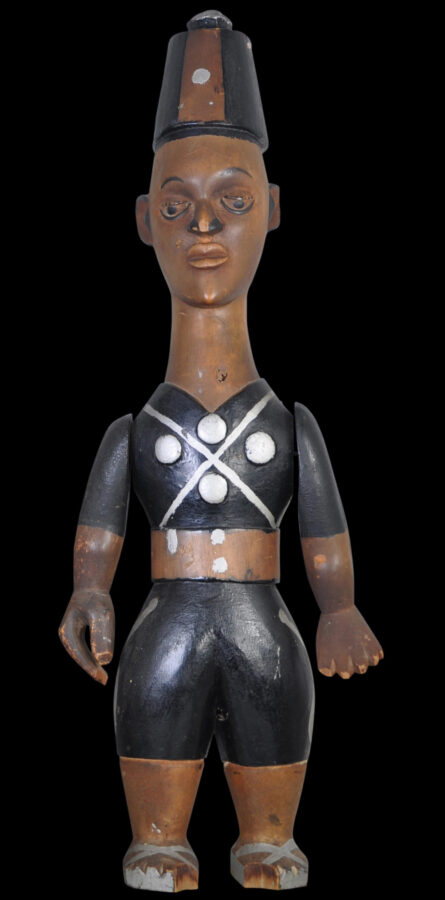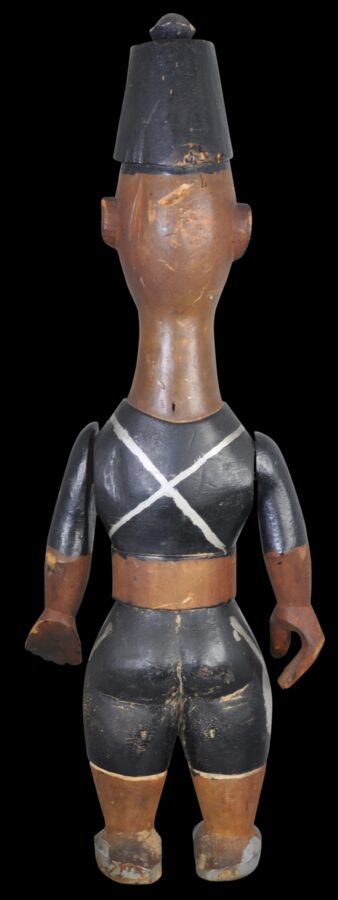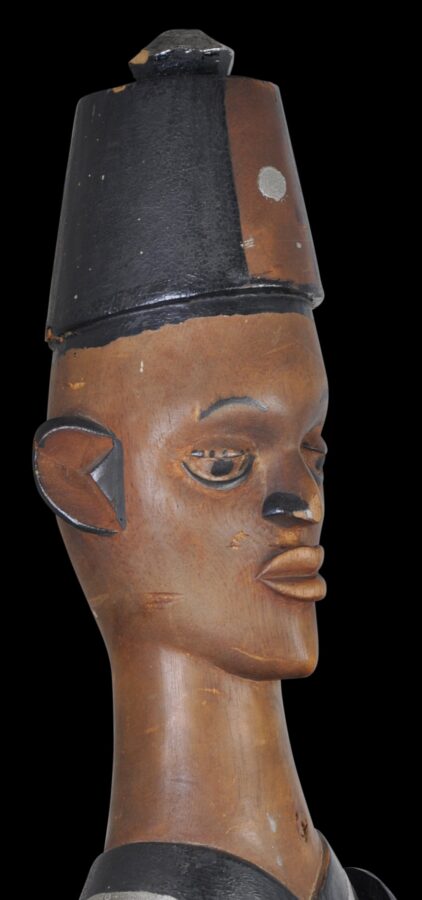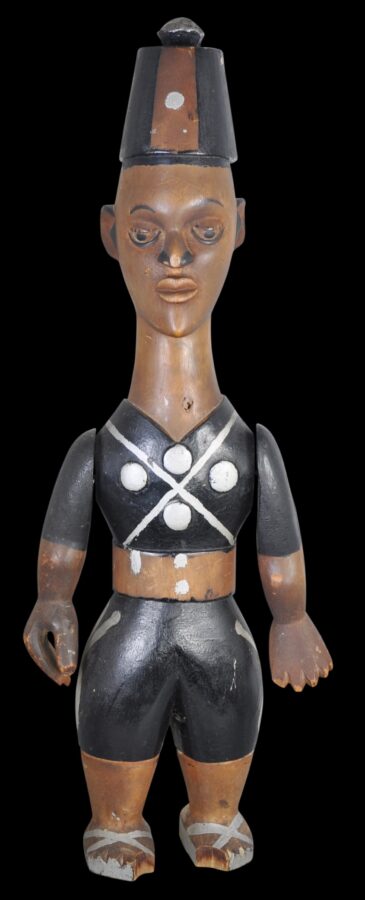Enquiry about object: 9190
Ibibio Carved Wooden Soldier Puppet Figure
Ibibio people, coastal Southern Nigeria circa 1920
height: 55cm
Provenance
UK art market; Christie's Paris, 2006.
This splendid carved wooden puppet figure is from the Ibibio people of Nigeria. It in the form of a colonial soldier.
Such puppets were used in ceremonies in men’s secret, socio-religious associations (Ekon). They were used to tell stories and often played an educative role for society members. But other times they were used to parody village life and to satirise the foibles of prominent members of the community and probably in this case the colonial masters.
The arms here are movable but the rest of the puppet is fixed. The soldier figure is dressed in quasi-military costume with shiny buttons and a tall fez-like hat. The figure has a delicate, well-carved face.
See Robbins (1989, p. 272) for a single related example of an Ibibio Ekon puppet.
The Ibibio people are a coastal people in southern Nigeria. They are mostly found in Akwa Ibom and Cross River States. Prior to the gradual abolition of slavery in Nigeria by British colonial authorities from the mid-1880s, Ibibio society was divided into the freeborn (amanisong), immigrants (ududung) and slaves (ifn). Slaves were purchased in slave markets or captured through intergroup warfare.
The puppet here is in fine condition. There are minor age and use losses to the toes but this seems to be typical. Overall, it is decorative and has obvious age.
This actual figure comprised lot 147, Christie’s ‘Art Africain et Oceanien’, Paris, June 20, 2006.
References
Christie’s ‘Art Africain et Oceanien’, Paris, June 20, 2006.
Robbins, W. M. & N. I. Nooter, African Art in American Collections, Smithsonian Institution Press, 1989.







